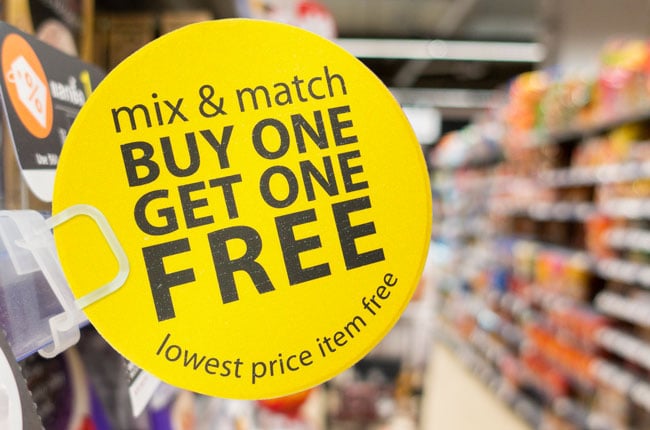A quick glance round any supermarket would tell you that these multi-buy offers are concentrated on food and drink products that are high in fat, salt and sugar (HFSS) – otherwise known as junk food. Consumers can find offers on items such as biscuits, sugary soft drinks, crisps – it’s pretty rare to see multi-buy offers on food like vegetables and fruit.
This is, in part, because junk food, while often cheap to buy, is also cheap to make and thus highly profitable. However, such food products are often high in calories and highly palatable, meaning consumption is higher, even though they provide poor nourishment.
They also contribute to overweight and obesity including in children, which is recognised as a serious public health challenge.
The situation in England
In England, the UK government agreed to implement restrictions on multi-buy offers for food high in fat, salt and sugar (HFSS) as part of childhood obesity strategy. These measures were supposed to come into force in April 2022, but were then delayed until October 2022. Implementation was subsequently delayed until October 2023. Then in June 2023, a further delay until 2025 was announced.
In delaying the introduction of these measures in England, the UK government cited “cost of living pressures” saying it wouldn’t be fair to make food shopping more expensive. However, evidence shows that the multi-buy offers don’t actually save consumers money; they just result in people spending more.
Research by Public Health England showed that multi-buy price promotions can increase household spending on food and drink by 20%. NHS Scotland found that multibuys increased overall spending, because people bought more products and didn’t compensate by buying less in future shopping trips. In addition, there’s research showing that multi-buy offers contribute to increased food waste.
The effects of a poor diet
More importantly, these junk food offers don’t increase the affordability and availability of healthy food for low income communities. Analysis by the Food Foundation shows that the poorest 50% of households would need to spend 30% of their disposable income on food to eat according to national healthy eating guidelines.
A poor diet is linked to overweight and obesity which are key risk factors for many non-communicable diseases (NCDs), including cancer. Eating foods that are high in fat, salt and sugar thus increase your risk of cancer and other NCDs in comparison to eating a healthy, diverse diet such as following our cancer prevention recommendations of:
- Eat wholegrains, vegetables, fruit, pulses (like lentils) and beans on a daily basis
- Avoid or limit sugary drinks
- Avoid or limit “fast foods” – those high in fat, salt or sugar
- Limit red and processed meat
WCRF is pleased that the Welsh government has now confirmed that HFSS multi-buy restrictions will be implemented in Wales next year. The Scottish government consulted in late 2022 on similar measures for Scotland and proposals are awaited.
In WCRF’s response to the UK government’s major conditions strategy for England, we highlighted the need for a variety of measures to tackle key NCD risk factors. This included measures to tackle overweight and obesity, where we asked that the planned HFSS multibuy restrictions be implemented sooner rather than later.
We’re advocating for governments across the UK to be bolder when it comes to taking action on NCD risk factors, including overweight and obesity. We hope that this will soon lead to multi-buy offers on HFSS foods becoming a thing of the past.




